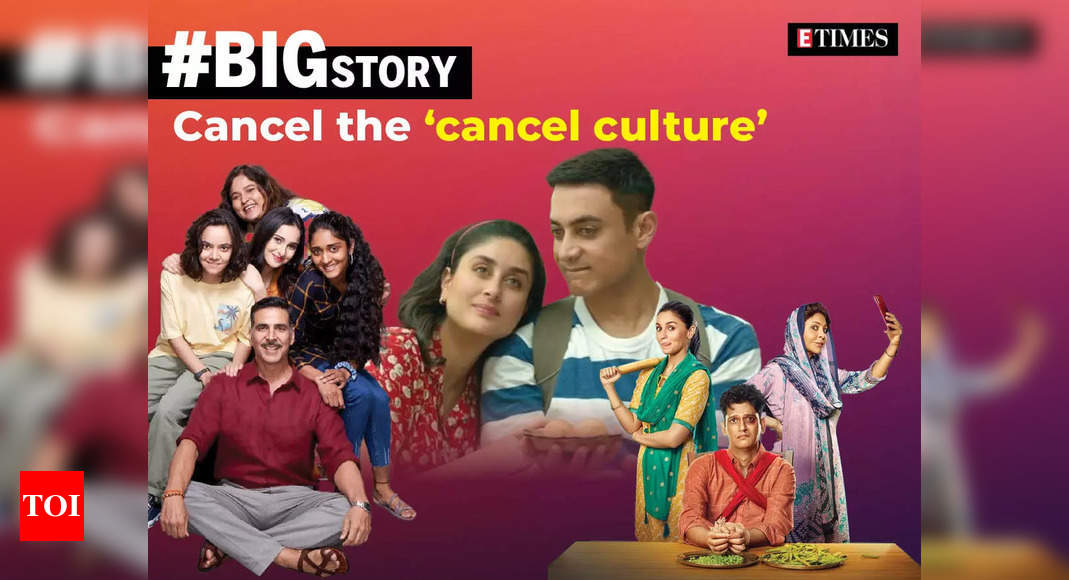Laal Singh Chaddha and Raksha Bandhan boycott: Cancel culture is destroying films – #BigStory – Times of India
Naysayers believe that Aamir’s film should suffer at the box office because of a statement he made seven years ago about intolerance and not feeling safe in India. Some also pointed out how the actor made fun of Hindu deities and rituals in his 2014 film ‘PK’. Likewise, Akshay’s film is facing the flak after netizens dug out writer Kanika Dhillon’s four-year-old tweets about ‘gau mata’ which are being interpreted by fringe groups as ‘hinduphobic’!
For the sake of Laal Singh Chaddha’s prospects, Aamir had to address the matter during a recent media interaction. “I feel sad that some of the people who are saying this, in their hearts, they believe that I am someone who doesn’t like India. In their hearts, they believe, but it is untrue. I really love India. That’s how I am. It is rather unfortunate if some people feel that way. I want to assure everyone that it’s not the case so please don’t boycott my films, please watch my films,” he said.
Back in 2010, when ‘My Name Is Khan’ was threatened with boycotts over Shah Rukh Khan’s statement about the IPL, he had tweeted, “Sad my statements are seen as a stand against a group instead of a stand for myself and my individuality. Differences in ideology should be grounds for debates and discussion. A must for freedom of thought. To see it any other way is so unfortunate.”
differences in ideology should be grounds for debates & discussion. a must for freedom of thought.to see it any other way is so unfortunate.
— Shah Rukh Khan (@iamsrk) 1265206998000
Others like Kareena Kapoor Khan and Alia Bhatt too have condemned ‘cancel culture’ and maintained that we need to ignore things like these. In this week’s #BigStory, we look at the various times Bollywood movies fell prey to the cancel culture and the ramifications of such targetted campaigns. Such is the threat of bans and boycotts that several industry bigwigs refused to talk to ETimes about this sensitive subject. Yet, we found a few brave ones and this is what they had to say…
When the ‘sentiments were hurt’
The list of Bollywood films being called for a boycott or a ban citing hurt sentiments is a long one. And the reasons range from themes like politics, history, caste, religion to extra-marital affairs, sexuality or anything that goes against the belief system of a faction of society. There have been times when the hate campaigns moved into the offline world and turned violent, like in the case of Sanjay Leela Bhansali’s ‘Padmaavat’, Prakash Jha’s ‘Aashram’ and Deepa Mehta’s ‘Fire’. From announcing bounties on Deepika Padukone’s nose to vandalising the sets of ‘Aashram’, to burning posters of ‘Fire’ and destroying theatres screening the film, the incidents have been intimidating to say the least.
Sanjay Leela Bhansali’s 2013 film ‘Goliyon Ki Rasleela: Ram-Leela’ faced protests in several states following a petition filed claiming that the movie hurt religious sentiments of Hindus as it contains sex, violence and vulgarity. A few years later, Nitesh Tiwari’s ‘Dangal’ faced the wrath of people who were offended by Aamir Khan and Kiran Rao’s statements about the growing intolerance in India.
A dream sequence alleging a romantic scene between Khilji and Padmavati caused an outrage over SLB’s 2018 film ‘Padmaavat’. The Karni Sena vandalised film sets, assaulted SLB and even threatened to cut off Deepika Padukone’s nose!
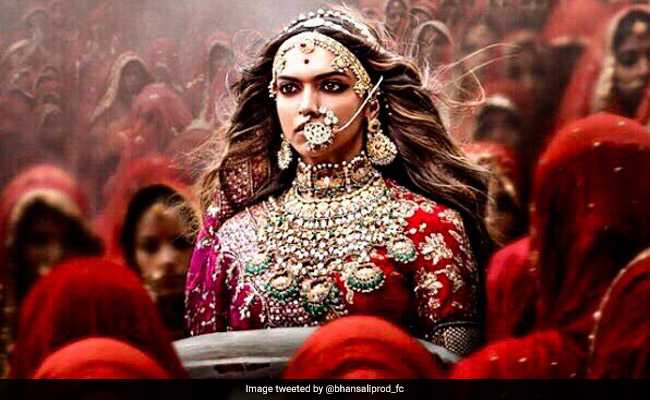
Mahesh Bhatt’s directorial comeback in 2020 ‘Sadak 2’ starring Alia Bhatt faced backlash over nepotism and Sushant Singh Rajput’s untimely demise. Madhur Bhandarkar’s ‘Traffic Signal’ was banned in Himachal Pradesh, Anurag Kashyap’s ‘Black Friday’ in Bihar, Rahul Dholakia’s ‘Parzania’ and Aamir Khan’s ‘Fanaa’ in Gujarat. Vishal Bharadwaj’s film ‘Kaminey’ too got into trouble for a particular word in the song ‘Til Til Taala’.
In the case of Mani Ratnam’s ‘Bombay’, the team had to meet Shiv Sena chief Bal Thackeray who allowed the release. ‘Jodhaa Akbar’ was not released in Rajasthan because of protests from Karni Sena. And most recently, #BoycottAliaBhatt took over the Twitter trends after some sections of the audience got offended by Alia’s latest film ‘Darlings’ stating it promotes violence against men.
A film is not just about the stars
Apart from the lead actors, filmmaking involves a large number of artistes and behind the scenes technicians. And while boycotting a film may cause a little setback for the stars, it causes so much more harm to the others. “Film industry is not just about the stars. It is about lakhs of people who depend on the industry. A film has a crew of about 3000-4000 people working on it. By boycotting ‘Laal Singh Chaddha’, you are not boycotting Aamir Khan, you are boycotting thousands of people,” says trade analyst Komal Nahta.
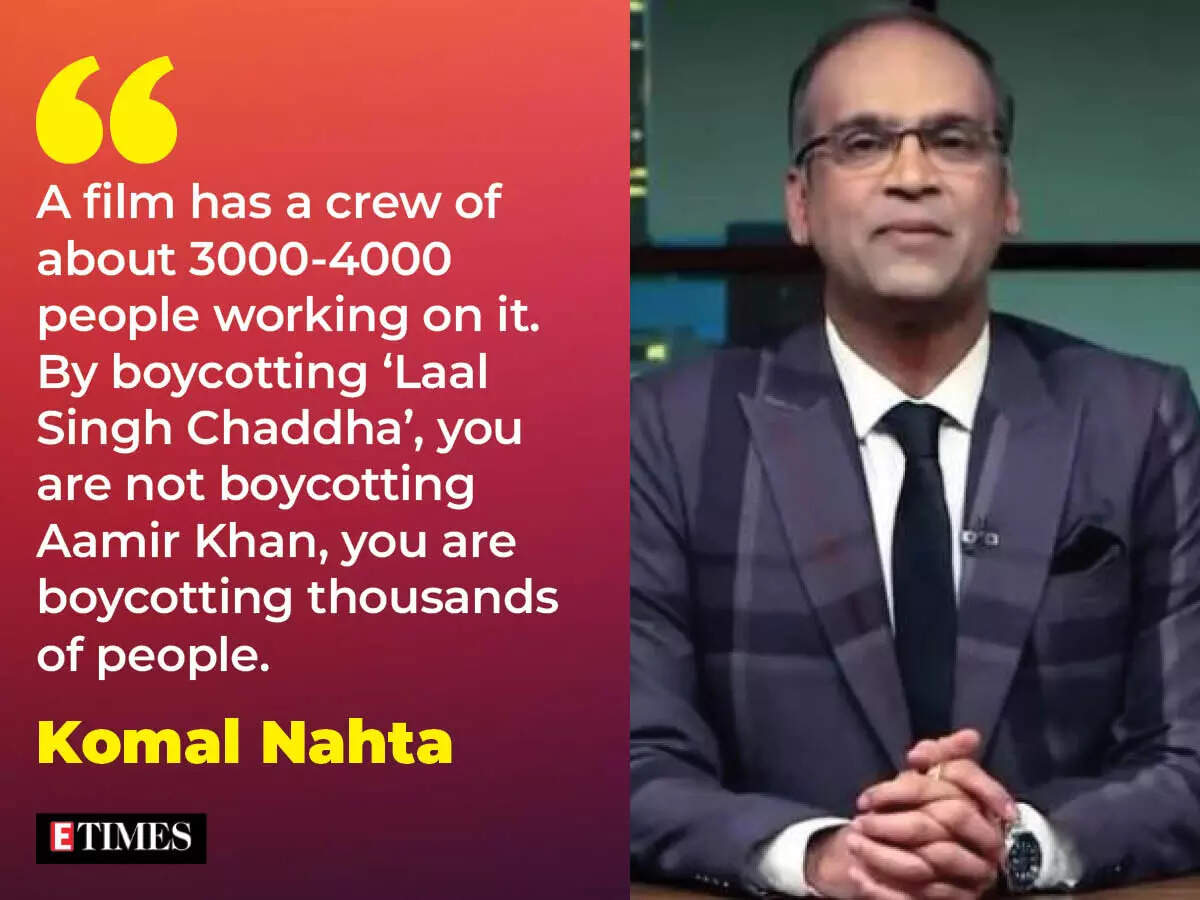
Filmmaker Rahul Dholakia, whose 2017 film ‘Raees’ also faced protests in various parts of the country for casting Pakistani actress Mahira Khan, recently tweeted, “Trolling a film because a cast or crew member’s ideology differs from yours is unfair to the other hundreds who have worked hard to make the film. They have also pinned their hopes on the success of the film to help realise their dreams. Spare a thought.”
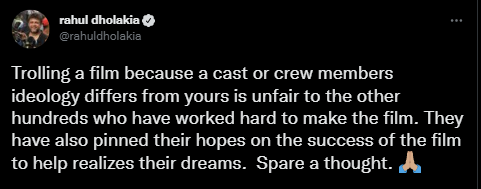
Nahta further condemned such acts and added, “I don’t know why this ‘culture’ is thriving. People are enjoying this trend. Vandalism causes huge losses. What if a life is lost? I am appalled at the fact that how can somebody not be allowed to do business in this country.”
An industry insider on condition of anonymity stresses on the fact that several livelihoods are impacted with such protests. “What Aamir should have done is gather all the people on the team and do a silent protest. They too are a part of the film, and they haven’t wronged anybody. Why are their livelihoods impacted because of a statement Aamir made years ago?
Aamir ko koi fark nahi padega. By calling for a boycott, they are hurting so many people’s interests.”
On the other hand, youth leader of Karni Sena and film producer Surjeet Singh Rathore shares a different opinion. “These artistes and technicians are suffering because of Aamir Khan. He says he feels scared in the country and then he asks people to watch his film. Why should Indians watch his film? In fact, producers should not invest money in such people, only then will they learn a lesson,” he says, adding, “There are other actors who are doing good work.”
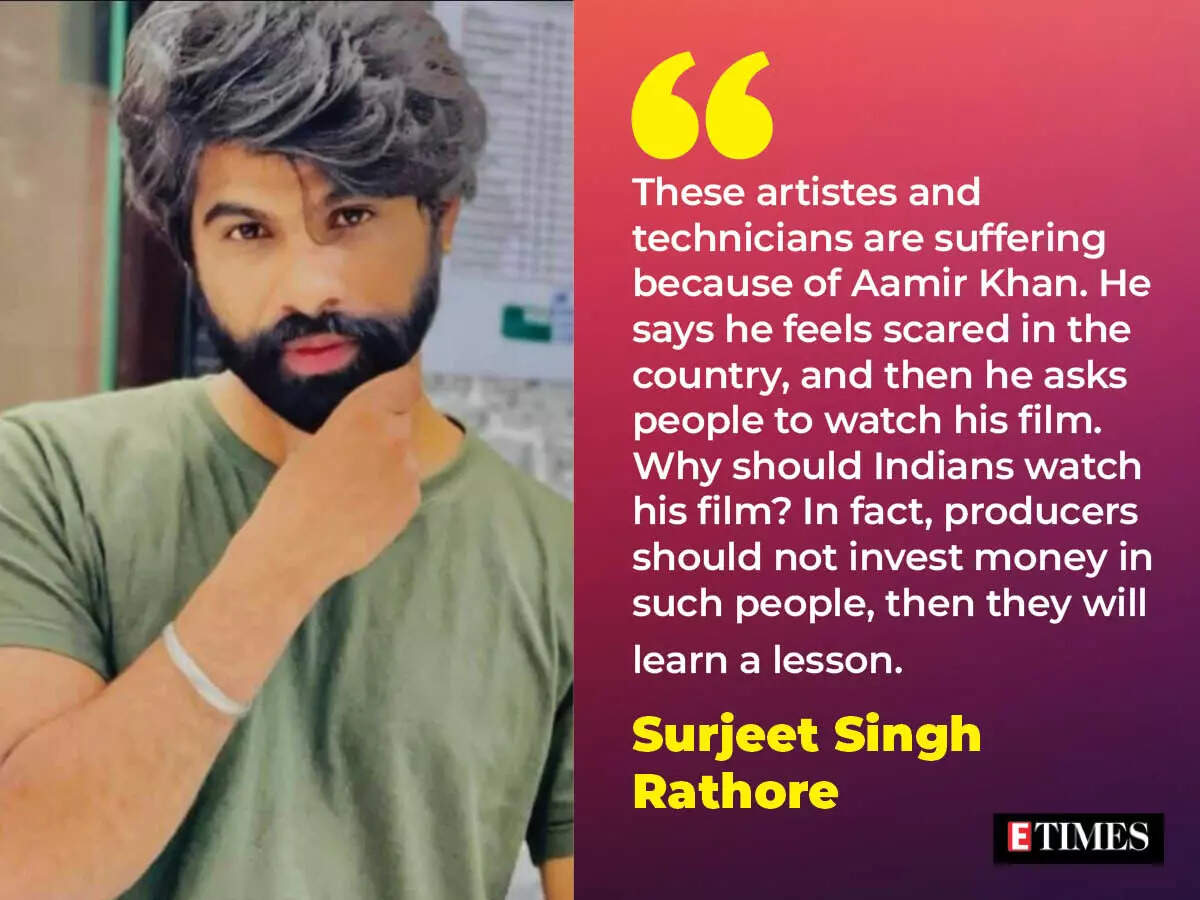
Reflecting on the threat to chop off Deepika’s nose during ‘Padmaavat’, Surjeet says, “Don’t go by the words. Those were our sentiments. If you hurt sentiments, it will have a reaction. Look at the South film industry. Not one film has seen any protest. They never said they feel scared being in the country. Why are Aamir and Shah Rukh feeling scared? Kanika Dhillon is also singing the same tunes. It is wrong. It’s the Indian masses who have made Aamir a superstar, and they can bring him down as well. Actors should not do politics, they should just entertain.”
Censor Board’s decision should be the final word
If there is something about a film one does not like, a person always has the option of not watching the film. Calling for a ban or a boycott seems like an over reaction, a product of over sensitivity. Reflecting on the same, advocate Ameet Naik tells ETimes, “There have been certain cases in which the governments have banned the release or exhibition of films, even after they have been duly certified by the Central Board for Film Certification (CBFC). However, courts have deprecated such challenges, holding that once a film has been certified by the CBFC, a statutory body guided by the principles in the Cinematograph Act, 1952, they are fit for public release. We have represented several films which have been dragged to court, a prominent example being the movie ‘Aarakshan’ (featuring Amitabh Bachchan, Saif Ali Khan and Deepika Padukone) which was banned by state governments. But this ban was set aside by the Supreme Court, which then allowed release of the film.”
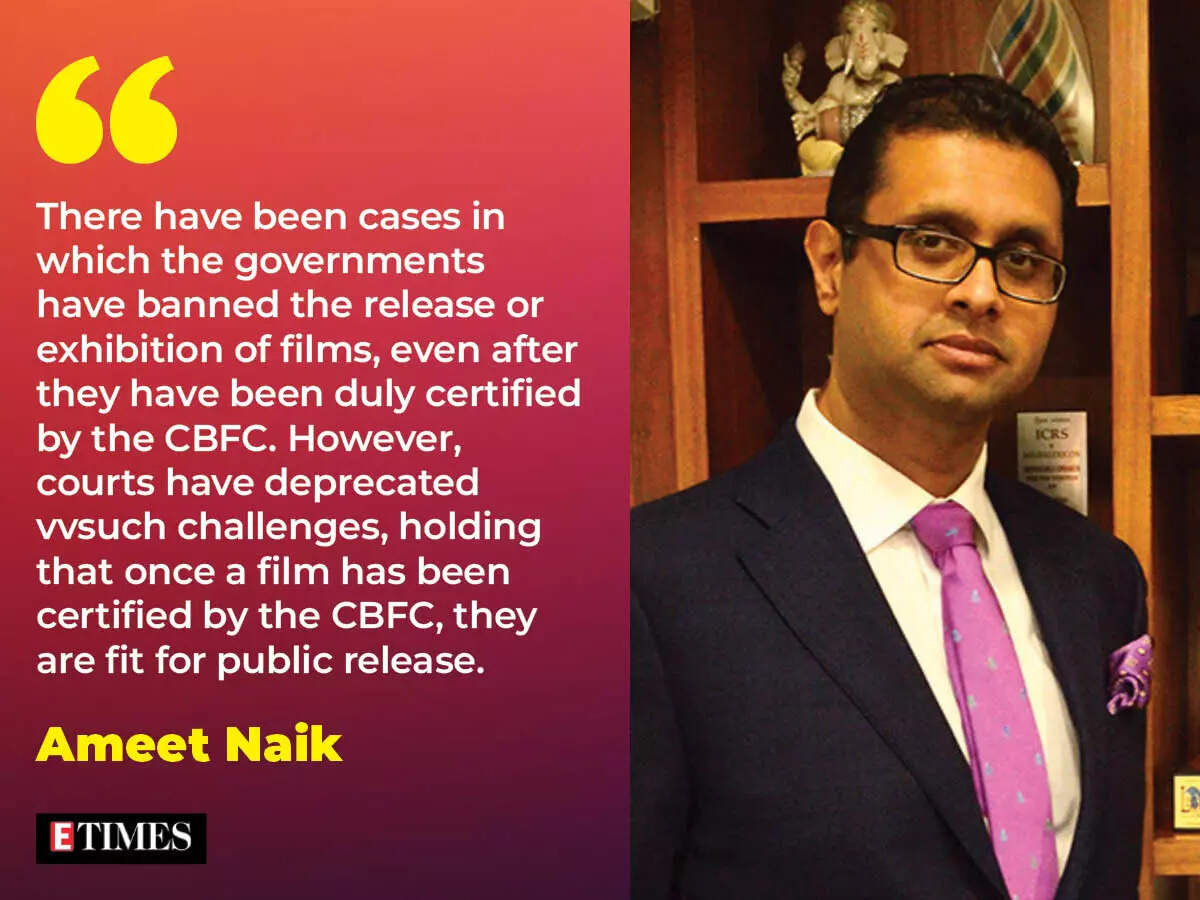
Social media has empowered the mob
Social media has had a huge role to play in escalating such targetted campaigns. Filmmaker Amit Khanna says, “No one is in control of these virtual armies. These social platforms are increasingly being used to spread hate against other people with contrarian views. Of late, fans of various stars take up this task as a display of their loyalty. So if the competing stars have their film releasing on the same day, then a regular slanging match erupts. Obviously, not everyone is influenced by these virtual wars but it does vitiate the atmosphere. Same is the case with ‘Laal Singh Chaddha’ and ‘Raksha Bandhan’. Some of the promotion or negative publicity is done by troll armies of all hues.”
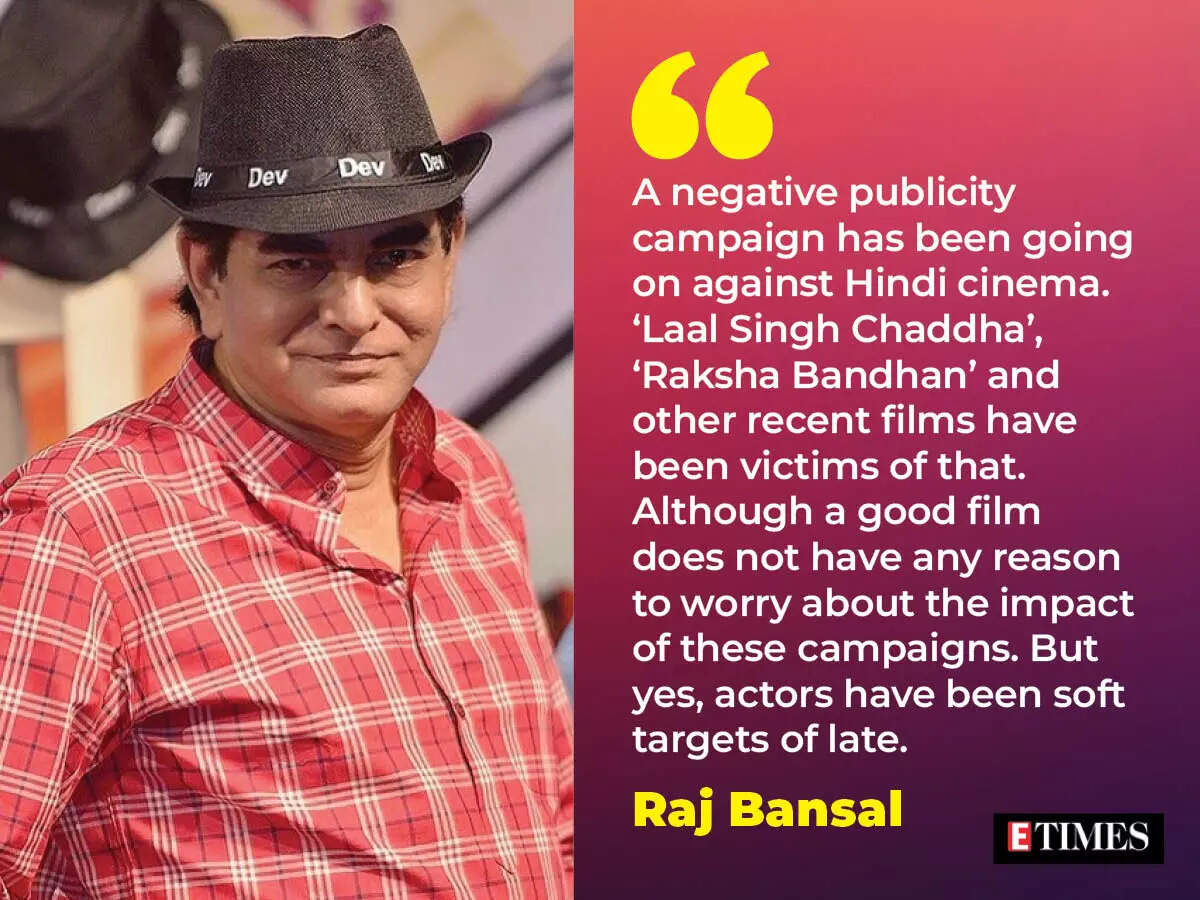
Film analyst and distributor Raj Bansal agrees, “A negative publicity campaign has been going on against Hindi cinema. ‘Laal Singh Chaddha’, ‘Raksha Bandhan’ and other recent films have been victims. Although a good film does not have any reason to worry about the impact of these campaigns. But yes, actors have been soft targets of late.”
Film historian Dilip Thakur notes most of the controversies have happened in the last 50 years. “Earlier a film would release and it would be either a hit or a flop. That’s all. People would discuss the quality of a film. In the 70s, the controversies began. There was a controversy around the poster of Smita Patil starrer ‘Chakra’. On one side, there was a socio-political theme and on the other side, there were bold subjects brought by BR Ishara and Ram Dayal. It all got mixed since then. Nowadays, people use social media to kill a film,” he says.
Lack of unity in the film industry
Industry veterans believe there is a lack of unity in the Hindi film industry the way it existed in earlier times, unlike the South that still presents a united front. “Why should the Hindi film industry accept such things lying down and become easy targets? Sadly, there is no unity in the industry. If this happens in the South, there will be such a furore,” says Komal Nahta.
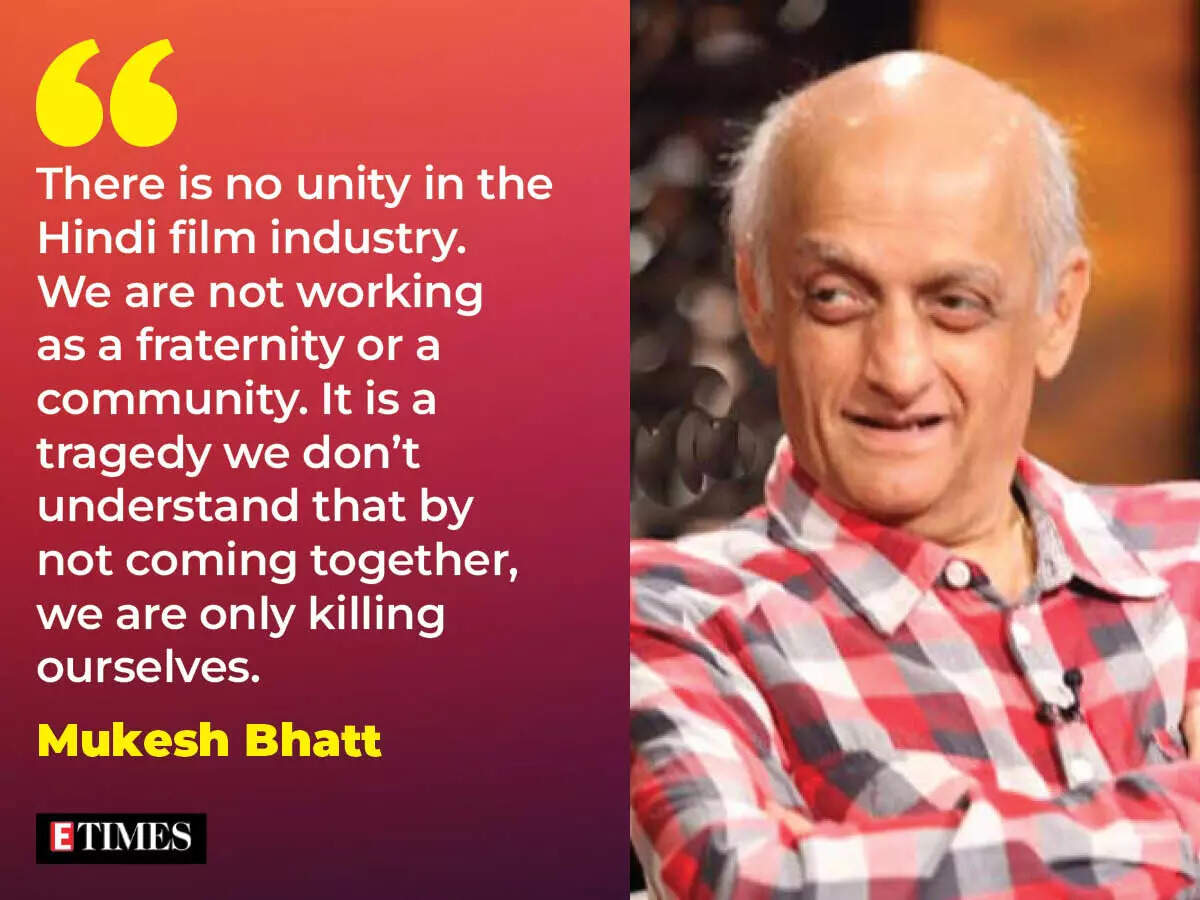
Mukesh Bhatt agrees, “The industry today is a bunch of tribals, each trying to survive in their own habitat. There is no unity in the Hindi film industry. We are not working as a fraternity or a community. It is a tragedy we don’t understand that by not coming together, we are only killing ourselves. The day we come together for mutual protection and interest, we will not become vulnerable ducks waiting for people to come and shoot us down. When I was the president of the Producers’ Guild, I took a stand for ‘My Name Is Khan’, ‘Ae Dil Hai Mushkil’, ‘Udta Punjab’… I felt it was my moral responsibility to help the fraternity that has given me so much love and affection. This sentiment exists in the South and we will benefit as an industry if we do the same.”
Courage is a rare commodity
Today, no one wants to stick their neck out for their friend, acquaintance or colleague. The entertainment industry, especially, consists of people who seek popular mandate. So any kind of negative publicity is avoided like fire. “The film industry is very vulnerable when their content is put into public domain for the verdict of the people,” says an insider. “As it is, this is a business of uncertainty and the strike rate is very poor. That is the history of the entertainment world. And when a film, in which so much is invested, is fighting not only the uncertain post Covid times with the number of people visiting theatres having fallen drastically, it is also forced to combat anti-publicity. A film being dismissed even before anybody has laid eyes on it contributes to great uncertainty, and particularly the individuals who are connected to that particular film feel vulnerable and exposed. It’s obvious that those who do not belong to the ideology of the ruling dispensation are more vulnerable. The larger game plan is for political benefit,” adds the insider.
Sociologist Shiv Visvanathan says we should look at these incidents in a collective way. “Culture is now not something organic and diverse, but a standardised manufacture with prefabricated codes. Culture doesn’t create diversity but is subject to policing and surveillance. It is meant to marginalise and to harass. A film has almost a mythic role in India in unifying culture. If we destroy a film, we make a major move to authoritarianism. Diversity is no longer a part of majoritarian democracy,” he summarises.
For all the latest entertainment News Click Here

